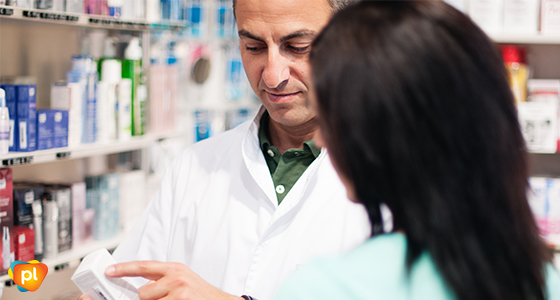
You may think of your pharmacist simply as the person who fills your prescription. However, pharmacists play a really important role as a member of your healthcare team.
Pharmacists are medication experts who love to solve medication related problems, and whom you can turn to for guidance on your medications. They can help you understand your medications and the treatment decisions that are being made by your healthcare team. Taking your medication properly is an important part of taking care of yourself. By working with your pharmacist, you can be sure you take your medication safely, effectively, and appropriately to maintain your good health.
Pharmacists can also provide advice on your medications such as how to take them. This will include how frequently and at what times of the day are best, whether to take them with or without food, and also how to store your medications.
For your information, your bathroom medicine cabinet is not the best place to store your medications. Being in your bathroom, it’s often a moist and relatively warm place. Ideally, medications need to be stored in a cool, dry place and out of reach of children.
Pharmacists can also provide advice on what to do if you miss a dose of your medication. Please check with your pharmacist as this will vary depending on the medication. Your pharmacist will also be able to advise you on what side effects you can expect and how to mitigate them; including which side-effects are normal, and what side-effects may be serious and need further investigation.
If you are taking multiple medications, it can become difficult to keep track of them all, and quite overwhelming, confusing and also time consuming. Your pharmacist can provide hints and strategies to help with managing your medication. Taking daily medication can become so routine that you may not specifically remember whether you‘ve taken it or not. Your pharmacist may suggest using pill boxes or dosettes, and may offer to pack all your medication in a Webster-Pak or similar. These devices not only help you organise your medications more effectively, they allow you to easily check whether you have taken your medication. Forgetting to take medication or taking too much can have severe consequences.
Drug interactions are particularly prevalent with HIV medication. Your pharmacist will check for any potential interactions with other prescribed and non-prescribed medicines, vitamins and supplements and also any other medical conditions. This is particularly important for those who take multiple medications and see multiple doctors. Your General Practitioner and your specialists may not always know all the medications the other has prescribed. They may also not be aware of the non-prescription medicines/supplements you may be taking.
One of the best things that you can do is have a list of all the medications you take, and have that on hand for your medical appointments and also show that to your pharmacist when having a prescription filled. This is particularly important if you collect your medications from different pharmacies. Ideally, I recommend clients collect all their medication from the one pharmacy.
While many people living with HIV now collect their HIV medication from community pharmacies, others continue to use specialised services like The Albion Centre, Sydney Sexual Health Centre, Clinic 16 or other hospital-based pharmacies. These services may not have a list of all your medication, and likewise your community pharmacy may not know you are taking medication for HIV. At least one of your healthcare providers should have knowledge of all the medications you take. This is why a list of all your medications is vitally important.
The list can be simply written in a notebook or on your phone and there are now a number of smart phone apps available to help. The NPS ‘MedicineWise’ app is one such helpful phone apps (www.nps.org.au/consumers/medicinewise-app) It not only records your medications, but can also be used to set medicine and appointment reminders, record allergies, access information on medications and more. It also provides a section where you can write down all the questions you may want to ask your doctor, your pharmacist or your nurse.
Please do not be afraid to ask questions of your pharmacist, whether at your local pharmacy or a specialised service. All pharmacists undergo extensive training and have access to support and more specialised pharmacists, to be able to offer you the expertise and knowledge you need.
Community pharmacists are the most easily accessible healthcare providers to the general public. Pharmacists are bound by a Code of Conduct which protects your confidentiality and you should hopefully feel comfortable in discussing any health-related matters, including but not limited to your HIV status.
Most pharmacists want to be an active member of your health care team, and they can be a huge advocate for you and your health. While you may only see your doctor a few times a year, you hopefully see your pharmacist at least every month or two and they are there to intervene and refer when needed and liaise with other health care professionals.
Building a strong relationship not only with your doctor but also with your pharmacist will result in better health outcomes for you.
As a pharmacist, I want to be a partner in your care. I want to see you as healthy as possible and I want you to help me to take the best care of your health and wellness. So next time you go and pick up a prescription at your pharmacy, whether at a community pharmacy or at one of the specialised Sexual Health Services, have your medication list on hand, stop and have a chat.
And please, ask those questions!
Published in Talkabout #202 April 2021






